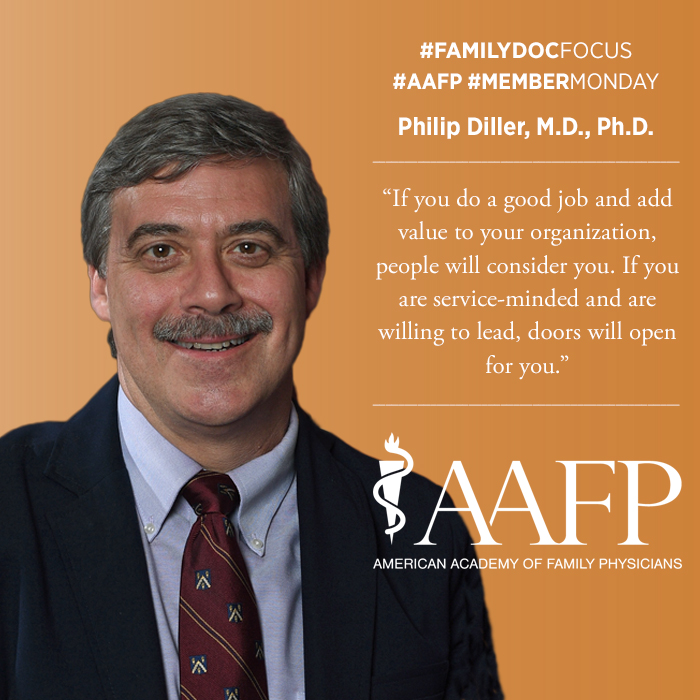Training the Next Generation of Family Physicians
September 24, 2018, 11:21 am David Mitchell – When Philip Diller, M.D., PhD., recently was named senior associate dean for educational affairs at the University of Cincinnati (UC) College of Medicine, it marked the third time in 20 years that he had been appointed to an important role in medical education without aggressively pursuing it.

"I never applied for the new job," Diller said. "I never applied the be chair of family medicine. I never applied for the program director's role. People came to me and asked me to do them.
"If you do a good job and add value to your organization, people will consider you. If you are service-minded and are willing to lead, doors will open for you. It is unusual, but that's how it happened for me."
Diller was the family medicine residency program director at UC from 1999 to 2010 before becoming chair of its Department of Family and Community Medicine in 2011.
In his new role, he is responsible for overseeing the educational mission of the college, where, after completing his residency training at UC, he became a member of the faculty in 1991. That oversight includes the offices of medical education, student affairs and admissions, and CME. He also will be responsible for the university's baccalaureate program, simulation center and Area Health Education Program, and also will serve as vice president for education at UC Health and interim chair of the Department of Medical Education.
Diller said it's important for family physicians to take on roles as academic deans so they can have a voice on important issues in medical education, including admissions.
"You have the ability to shape the conversation and the criteria being used to select students," he said. "What sort of students are we looking for to meet the needs of our communities? We should be preparing a workforce that represents our communities."
Diller is the outgoing chair of the Association of Departments of Family Medicine's (ADFM's) Education Transformation Committee. He recently represented the ADFM at a meeting of the 25 x 2030 Student Choice Collaborative, a group of family medicine organizations that seeks to increase the percentage of U.S. medical seniors choosing the specialty to 25 percent by 2030.
"The people here are committed to the issue of student choice," Diller said Aug. 31 as the two-day meeting hosted by the AAFP was wrapping up. "The question is, what can be done to collaborate as organizations rather than doing things independently? Can we leverage our partnerships to accomplish more?"
More than 25 years into his career as an educator, Diller said he still is driven to be a better teacher and clinician. He took a sabbatical in 1999 to attempt to answer a critical question: What is the art of medicine? His work formed the basis for the textbook that is used in an undergraduate class he teaches for UC health sciences students, Becoming a Master Physician. Diller said the undergraduate medical sciences major is unusual in that it is run by the medical school rather than the university.
"I love to learn," Diller said. "Family medicine has been a wonderful experience for that. Everything about the human body is relevant to being a family physician."